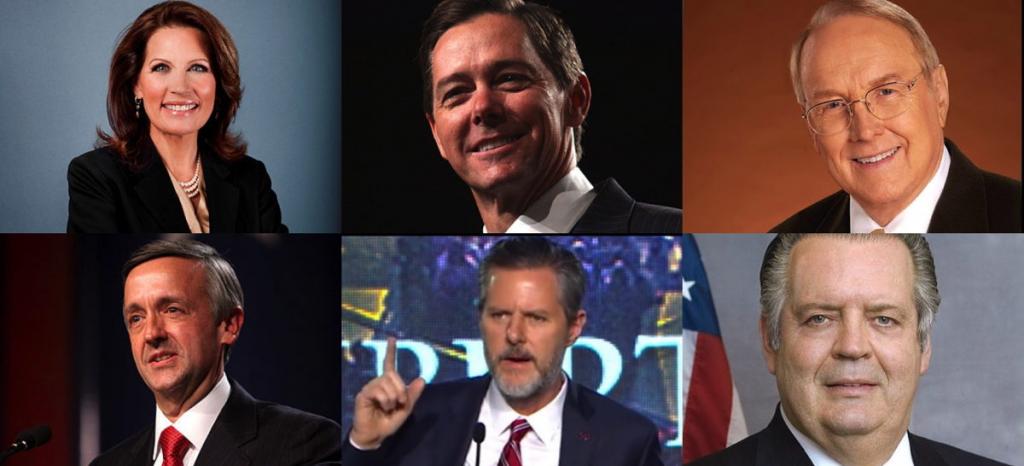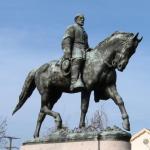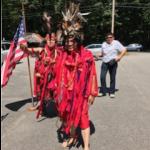A Failure of Moral Courage and of Gospel Understanding
Friday evening Rev. A.R. Bernard, an African American member of President Trump’s Evangelical Advisory Council, resigned in response to Trump’s handling of the Charlottesville. VA march of white supremacists, KKKs, neo-Nazi’s, and other alt-right groups, and the murder of Heather Heyer, a counter-demonstrator killed by a white supremacist’s car in an act of terror.
The silence of the President’s clergy group in response to this situation, which has sparked critical response across the nation and from the world, has been perplexing.
The highest ranking generals of each branch of the military were quick to publicly disclaim President Trump’s statement and to make strong statements of their own for racial justice.
Then there followed, in quick succession, similar statements from members of two of Trump’s business advisory councils, so many that, on Wednesday, Trump disbanded the Councils before they completely collapsed, in order to stop the embarrassing resignations.
And in all of this, the clergy said nothing at all.
This has been an appalling silence.
Clergy are expected to have a clear moral compass and to proclaim True North to all who cannot find their way.
The President has clearly been lost and fumbling for direction on the issue of race and in response to the death of Heather Heyer, and in response to the dozens injured by that weaponized car, and in response to the shock and grief of the city of Charlottesville, as well as the nation
But his clergy advisors had nothing public to say.
Several Charlottesville clergy were visible among the counter protestors, and held a church service of witness and commitment the night before, during the torchlit procession of the alt right who were shouting hideous epithets such as “Jews will not replace us” and “Blood and Soil”.
Across the nation many clergy, Protestant, Catholic and Jewish, have spoken out about these events. And world leaders, including the Pope, have made strong moral statements, calling upon Trump to apologize and stand firm against the KKK, white supremacists, neo-Naxis, self-proclaimed fascists, and those who words are unspeakably evil.
But the President’s clergy have been silent.
The President clergy, unlike the Councils of his predecessors, have been exclusively Evangelical pastors.
This branch of Christianity is centered on personal conversion, a biblical interpretation which reads all texts through a conversion-tinted lens, and piety which is centered on cross-worship.
Other branches of Christianity understand that Christ addresses us primarily as a people of faith, and describes himself as shepherd of a flock, not personal guru to individuals. Mainline Protestants, Catholics and liturgical Protestants, the Orthodox, and even many Pentecostals, all understand this primary Christian identity. In this identity, prophetic social address, and prophetic social witness are paramount proclamations of the gospel.
Only Evangelicals consider the primary relationship to be individually personal, and to continue to be personal, even when shared in a group. Only Evangelicals could maintain this five day silence in such a crucial social moment.
Fareed Zakaria of CNN has asked: Where are evangelical Christian leaders on a matter of basic morality? While some have made their voices heard, it is striking how many have not, or have even endorsed Trump’s comments. Do they have a burning moral duty to speak out against transgender bathroom access but not neo-Nazi violence?
Religious leaders, Zakaria continues, worry that they will lose congregants. They may not think they have the luxury to be high-minded, but they do. They are vastly more secure than most people in America, or in human history. If they cannot act out of broader interest, who can?
Zakarias praises the “military brass”, remarking on their . . . . five independently issued statements unequivocally denouncing racism and bigotry. Perhaps this is because the military has been the institution that has most successfully integrated the nation’s diverse population. Perhaps it is because the military remains an old-fashioned place, where a sense of honor, standards and values still holds. The military chiefs have shown why they still command so much respect in the country. America’s other elites should take note.
And perhaps this is the time for an open dialogue between the other branches of Christianity and evangelicalism, about the allure with which evangelicals draw in lay people, offering them a gospel in which God is primarily interested in their families, their work success and their prosperity. None of this comes from Jesus, and the foundations for it in biblical evangelicalism come from a hodgepodge admixing of sentences from Paul’s letters, books of the Old Testament, in a kind of Scriptural stew that reeks of self-congratulatory religion.
There are indeed responsible evangelical voices, such as Rev. Jim Wallis, and many a courageous Southern Baptist minister who, like President Carter, offer truth in the midst of a welter of honeyed words from other clergy like the TV prosperity gospel preachers.
None of them are on President Trump’s Evangelical Advisory Council.
Kudos to Rev. A.R. Bernard for finding his voice at last, although he took far too long to make up his mind to speak out. And for the rest of his silent brethren and sister, may the Holy Spirit afflict you with spiritual discomfort until you, too, become true to your calling.
________________________________________________________________________________________________
Image: Some of Trump’s Evangelical Clergy Advisory Council. Wikimedia image.











